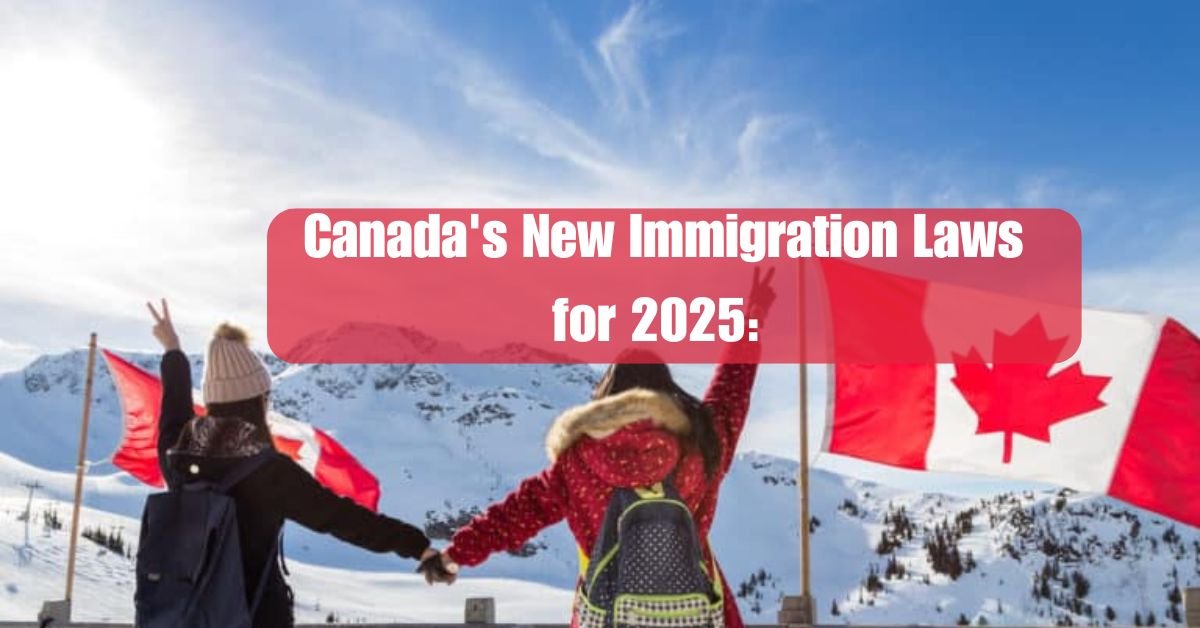Canada’s New Immigration Laws for 2025: Risks to Work and Study Permits and Temporary Resident Visas
Under certain conditions, Canada’s new immigration regulations may cancel work permits, study permits, and temporary residence visas (TRVs). These rules, which will go into effect on February 12, 2025, are intended to address issues with overstay and non-compliance in Canada’s immigration system.
Major Modifications to the New Regulations
According to Immigration, Refugees and Citizenship Canada (IRCC), the new policy allows immigration officials to revoke temporary residence permits in certain situations. Among the impacted documents are:
- Authorization for Electronic Travel (eTA)
- Visas for Temporary Residents (TRVs)
- Study Permits
- Work Permits
The IRCC anticipates cancelling about 7,000 of these documents in an attempt to control the number of temporary residents in Canada.
Who Will Be Impacted?
Many temporary residents in Canada will be impacted by this policy change, including:
- International Students: Students who fail to meet residency standards or make administrative mistakes may have their study permit applications revoked. Concerns have also been voiced by the IRCC regarding 50,000 foreign students who sought study permits but never arrived at their assigned universities.
- Foreign Workers: If a work permit is issued incorrectly if the bearer dies, or if they do not follow the terms of their visa, their status may be cancelled.
- Tourists and Visitors: If a temporary resident visa holder is found to be ineligible, overstays, or gives false information, their visa may be revoked.
- Applicants for Visas from High-Risk Nations: According to Canadian government data, non-compliance difficulties are most prevalent among applicants from Nigeria, Rwanda, Ghana, Iran, India, and China.
Reasons for Short-Term Visa Revocations
The Immigration and Refugee Protection Regulations (IRCC) provide some reasons why temporary visas may be revoked, including:
- Ineligibility: When someone is deemed ineligible because of a criminal record or because they submitted incorrect information.
- Overstay Concerns – If immigration officers believe the individual won’t leave Canada after their authorized stay.
- Document Issues – If a travel document is stolen, lost, or damaged.
- Errors or Status Change – If a visa was issued mistakenly, if the holder becomes a permanent resident, or in the event of their death.
Impact on International Students & Workers
Canada has set a maximum of 437,000 overseas student visas until 2025 to regulate immigration. However, if workers and students don’t follow the updated requirements, their visas could be cancelled.
Students from China and India, who account for the majority of non-compliant applications, may face increased scrutiny and denials as a result of stricter regulations.
Also Read: Get 50% Off on UAE Traffic Fines in These 4 Emirates in 2024
Consequences of Visa Cancellation
Those affected by visa cancellations may face:
- Forced departure from Canada if they no longer meet eligibility requirements.
- Denial of boarding at the airport.
- Refusal of entry upon arrival in Canada.
- Financial losses from prepaid travel expenses.
How to Continue Being Compliant
Temporary residents should do the following to prevent visa cancellation:
- Verify that every document is current, correct, and legitimate.
- Respect Canada’s residency requirements and immigration regulations.
- Avoid overstaying their authorized period of stay.
- Seek legal assistance if they receive a cancellation notice.
Conclusion
The way work permits, study permits, and temporary residence visas are handled has changed significantly as a result of Canada’s new immigration laws. The rules are intended to guarantee compliance, eliminate fraud, and strengthen border controls. Temporary residents and potential applicants must be aware of and ready to comply with Canada’s changing immigration regulations when these laws come into force.
Stay Updated
Share this story with everyone who might be impacted and follow us on social media for the most recent information on Canada’s immigration laws.

